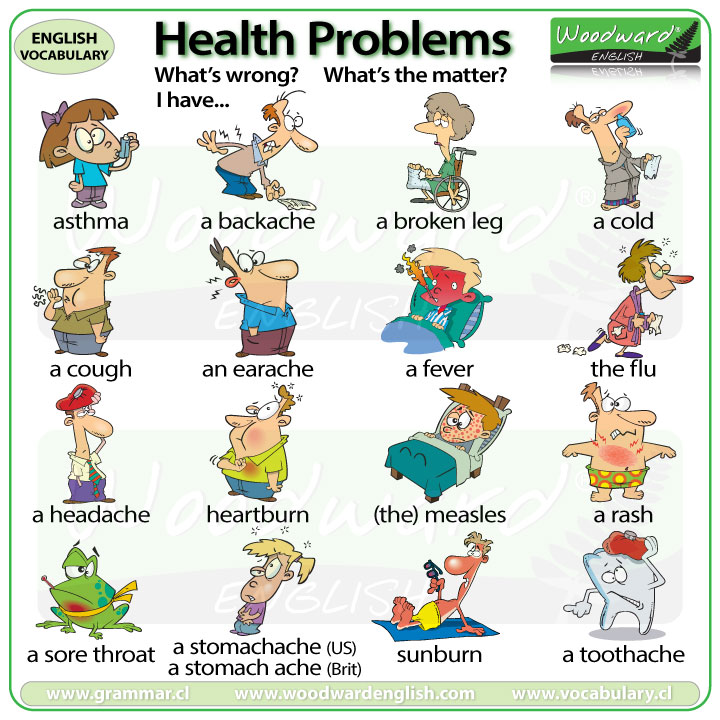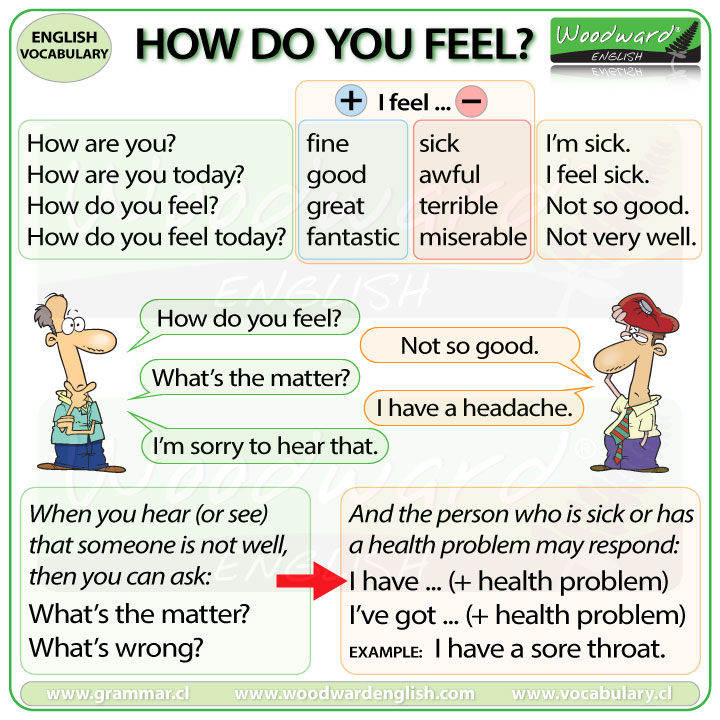
The most common ways to ask about someone’s health are:
- How do you feel (today)?
- How are you feeling?
- Is everything okay?
Some typical responses are:
- I’m fine.
- I feel sick.
- Not so good.
- Not very well.
- I don’t feel well.
- I’m sick.
When you see (or hear) that they are not well, then you can ask:
- What’s the matter?
- What’s wrong?
If the person wants to say what is wrong, they may give the reason they feel that way:
- I have … (+ health condition)
- I’ve got … (+ health condition)
- I have a headache
- I’ve got a sore throat.

Sick and ill
Sick and ill are often used interchangeably to refer to a state of poor health, but there can be subtle differences in usage depending on context, region, and speaker preference.
Some people might perceive ill as slightly more formal or literary than sick.
In general, sick is more commonly used in American English, while ill is often favored in British English. However, this is not a strict rule, and they are both understood in either dialect.
In British English, to be sick can mean to vomit.
Pain and ache
Pain is physical suffering or discomfort caused by illness or injury. It is usually a sharp sensation in a specific body part and hurts more than an ache.
Ache refers specifically to a dull or persistent discomfort. You can sometimes try and ignore an ache.
The two terms are often used interchangeably in colloquial language.
